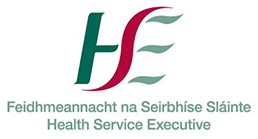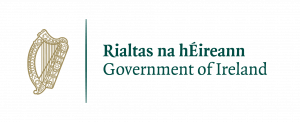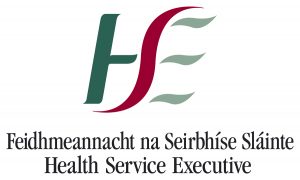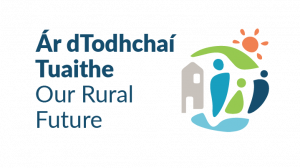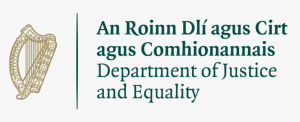At-risk groups
The list of at-risk groups includes people who:
- are 60 years of age and over – people over 70 are particularly vulnerable and should cocoon
- have a long-term medical condition – for example, heart disease, lung disease, diabetes, cancer, cerebrovascular disease, renal disease, liver disease or high blood pressure
- have a weak immune system (immunosuppressed)
- have a medical condition that can affect your breathing
- residents of nursing homes and other long-stay settings
- are in specialist disability care and are over 50 years of age or have an underlying health problem
What people in at-risk groups should do
The advice now for everyone is to stay at home.
You do not need to self-isolate unless you have symptoms of coronavirus.
If you are caring for someone in an at-risk group, it is very important you follow the advice on how to protect yourself from coronavirus.
We have some more specific advice about:
- weak immune systems (immunosuppressed) and coronavirus
- asthma and coronavirus
- COPD and coronavirus
- smoking and coronavirus
- pregnancy and coronavirus – if you are pregnant and have a significant heart disease, congenital or acquired, you should cocoon)
Weak immune system and coronavirus
There are many things that can cause a weak immune system (immunosuppressed).
These include:
- cancer treatment
- treatment for autoimmune diseases, such as rheumatoid arthritis, lupus, multiple sclerosis (MS) and inflammatory bowel diseases
- HIV – if you’re not on effective treatment
- having an organ transplant or a bone-marrow transplant
Other lung viruses can cause severe illness in people who have a weak immune system. This is likely to be the same for coronavirus. This is why you should take extra care if you have a weak immune system. This is similar for other infections, such as flu.
Phone your doctor if you have any symptoms of coronavirus and are concerned.
Continue to attend for any planned treatment, unless you have been told not to. If you have been in close contact with someone with coronavirus, phone the hospital before your appointment.
Hospital service disruptions and visiting restrictions (COVID-19)
Asthma and coronavirus
Having a chronic lung illness such as asthma may be associated with severe symptoms if you get coronavirus.
If you have asthma you need to make sure it’s well managed especially during this coronavirus outbreak.
Keep taking all of your asthma medicine as prescribed. Do not stop taking any of your medicines unless you first discuss it with your GP.
You should have an action plan from your doctor. If you do not have one, make one now. Call the Asthma Adviceline on 1800 44 54 64 to get an action plan or download and print off an action plan (PDF, 2 pages, 330KB).
What to do if you are diagnosed with coronavirus
If you are diagnosed you may be treated at home or you may be admitted to hospital. This decision will be made with your GP. it will depend on your symptoms, your home situation and the risk of spreading coronavirus.
If you are being treated at home continue to take all your inhalers as normal. Your GP may add steroids if necessary.
Be prepared to deal with an asthma attack in case you have one.
COPD and coronavirus
Having a chronic lung illness such as COPD may be associated with severe symptoms if you get coronavirus.
If you have COPD you need to make sure it’s well managed especially during this coronavirus outbreak.
Keep taking all of your COPD medicine as prescribed. Do not stop taking any of your medicines unless you first discuss it with your GP.
You should have a communication card and self- management plan from your GP.
It is important that you continue to follow your communication card action plan and take your inhalers as normal. Carry your reliever inhaler (usually blue)with you at all times.
The symptoms of coronavirus are similar to COPD, including breathlessness and cough. The main symptom of coronavirus which is different from COPD is experiencing a ‘new’ fever.
What to do if you are diagnosed with coronavirus
If you are diagnosed you may be treated at home or you may be admitted to hospital. This decision will be made with your GP. it will depend on your symptoms, your home situation and the risk of spreading coronavirus.
If you are being treated at home continue to take all your inhalers as normal. Your GP may add steroids if necessary.
There is more information on the COPD Support Ireland website on how to manage your COPD.
Call the COPD Adviceline Freephone 1800 83 21 46.
Smoking and coronavirus
Coronavirus (COVID-19) is an acute respiratory infection. Respiratory infections are serious infections that affect normal breathing. A wide range of bacteria and viruses cause these infections.
Smoking affects the immune system in the airways, lung tissue and throughout the body. This reduces your natural protection against infections, like coronavirus.
This means that if you smoke:
- you have an increased risk of getting acute respiratory infections
- you have a greater risk of the infection lasting longer
- you have a greater risk of the infection being more serious than it would be for someone who does not smoke
Second-hand smoke has similar effects. Children who are exposed to smoke are at increased risk of acute respiratory infections.
Stopping smoking reduces your risk of smoking-related illness. Reducing exposure to second-hand smoke is also important, especially for children.
Cocooning
For people most at risk, we are giving special advice called cocooning.
Cocooning is for people who are extremely medically vulnerable.
It means you should stay at home at all times and avoid face-to-face contact. Even within your home, you should minimise all non-essential contact with other members of your household.
Family, carers, neighbours and our public services will help ensure you have the support you need.
This advice is in place for 2 weeks from 27 March 2020. This period will be kept under review.
People who need to cocoon
Cocooning is for people who:
- are over 70 years of age
- are solid organ transplant recipients
- have cancer and are undergoing active chemotherapy or radical radiotherapy for lung cancer
- have cancers of the blood or bone marrow such as leukaemia, lymphoma or myeloma who are at any stage of treatment
- are having immunotherapy or other continuing antibody treatments for cancer
- are having other targeted cancer treatments which can affect the immune system, such as protein kinase inhibitors or PARP inhibitors
- have had bone marrow or stem cell transplants in the last 6 months, or who are still taking immunosuppression drugs
- have severe respiratory conditions including cystic fibrosis, severe asthma and severe COPD
- have rare diseases and inborn errors of metabolism that significantly increase the risk of infections (such as SCID, homozygous sickle cell)
- are on immunosuppression therapies sufficient to significantly increase risk of infection
- are pregnant and have significant heart disease, congenital or acquired
Cocooning is for your personal protection. If you are unsure whether or not you fall into one of the categories of extremely medically vulnerable people listed above, talk to your doctor.
Any essential or key worker advice should be sought from Occupational Health who can give specific advice on individual conditions.
How to cocoon
Do
Stay at home at all times and avoid any face-to-face contact for 2 weeks from 27 March.
If you have a garden or balcony, spend time outside for fresh air.
Keep in touch with family and friends over the phone or online if you have access.
Keep yourself mobile by getting up and moving as much as possible.
Ask neighbours, family or friends to get any shopping or medicine you need – do not go out shopping.
Arrange for food or medicine deliveries to be left outside your door
Use the phone if you need to contact your GP or other services – do not leave your house.
Don’t
Do not go outside your home and garden.
Do not have visitors to your home, except for essential carers.
Do not attend any gatherings, including gatherings with family and friends anywhere.
Phone your doctor if you have any symptoms of coronavirus.
If you are cocooning but have a carer who visits you
Visits from people who provide essential support with your daily needs should continue. These include healthcare, personal support and social care. These people can still visit you if they do not have any symptoms.
When carers visit, they need to wash their hands when they arrive. They should wash their hands often when they are in your home. They should try to stay 2 metres away from you, if possible.
If a carer develops symptoms, they will not be able to care for you while they are unwell.
They must stay away until both the following apply to them:
- 5 days with no fever
- 14 days since their symptoms first appeared
Contact the person who arranged your care to arrange another carer.
If you are cocooning but have someone else living with you
Other members of your household do not need to follow the cocooning measures above. But they should follow our social distancing and hand hygiene advice and you should follow our self-isolation advice. Even though it is hard, try to stay 1 metre apart and where possible 2 metres apart.
Medicines
If you have coronavirus, keep taking any medication you are on, unless told not to by a healthcare professional. This includes anti-inflammatories (NSAID) such as ibuprofen, naproxen or diclofenac.
Keeping well
Keep yourself mobile by getting up and moving around as much as possible. If you have a garden, backyard or balcony, go out and get some fresh air. But try to keep more than 2 metres away from other people.
Staying at home or self-isolation can be boring or frustrating. It may affect your mood and feelings. You may feel low, worried or have problems sleeping.
Try to look after your mental health by staying active and maintaining a routine. You may find it helps to stay in touch with friends or relatives by phone or on social media.
Older people can contact ALONE on 0818 222 024 Monday to Friday 8am to 8pm.
For access to HSE info click HERE…



